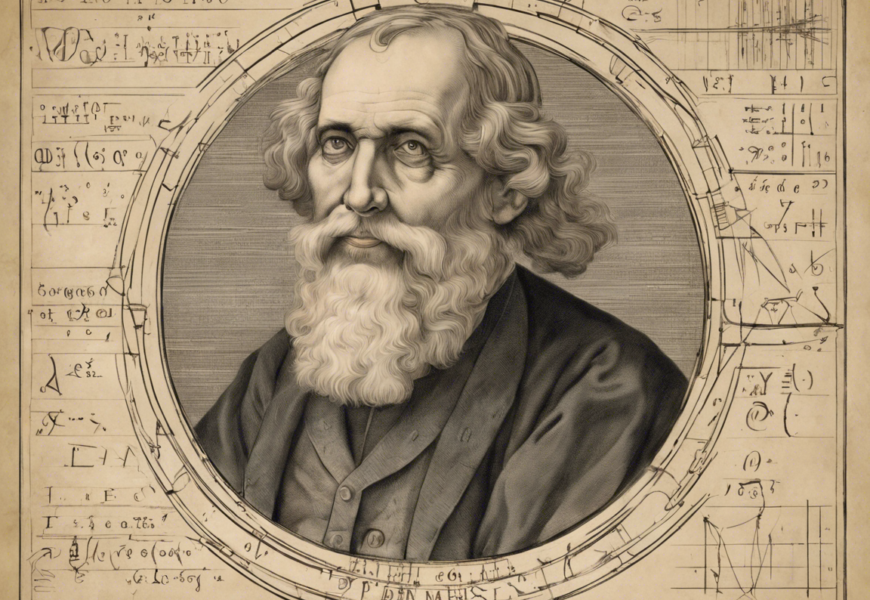In the vast world of mathematics, there are certain figures whose contributions stand out, shaping the very foundations of the field. One such legendary figure is Pythagoras, often dubbed as the “Father of Mathematics.” This title is not without merit, as Pythagoras made groundbreaking discoveries that have had a profound impact on mathematics and science as a whole.
Early Life and Education
Born around 570 BC on the island of Samos in ancient Greece, Pythagoras was a philosopher, mathematician, and religious leader. He received his early education in Samos, studying under various tutors and scholars. Seeking greater knowledge, he traveled extensively, visiting Egypt, Babylon, and possibly even India, absorbing the mathematical and philosophical teachings of these civilizations.
Pythagorean Theorem
One of Pythagoras’s most enduring and well-known contributions to mathematics is the Pythagorean Theorem. This theorem states that in a right-angled triangle, the square of the length of the hypotenuse is equal to the sum of the squares of the lengths of the other two sides. In mathematical terms, a² + b² = c², where c represents the length of the hypotenuse, and a and b represent the lengths of the other two sides.
This simple yet powerful formula has myriad applications in geometry, trigonometry, and physics, making it a fundamental concept in mathematics education to this day.
Pythagoreanism
Beyond his mathematical contributions, Pythagoras founded a philosophical and religious movement known as Pythagoreanism. Central to this belief system was the notion that mathematics and numbers were the building blocks of the universe, with everything in existence being ultimately reducible to numerical relationships. This holistic view of mathematics as a universal language permeated Pythagoras’s teachings and had a lasting influence on subsequent generations of mathematicians and philosophers.
Legacy and Influence
Pythagoras’s legacy extends far beyond the realm of mathematics. His ideas and teachings laid the groundwork for Western philosophy, science, and mathematics, shaping the intellectual landscape for centuries to come. The Pythagorean Theorem remains a cornerstone of mathematical education, a testament to the enduring relevance of his work.
In conclusion, Pythagoras, the Father of Mathematics, stands as a towering figure in the history of human knowledge. His profound insights and revolutionary ideas have left an indelible mark on the field of mathematics and continue to inspire generations of thinkers to this day.
Frequently Asked Questions (FAQs)
1. Who was Pythagoras, and why is he known as the Father of Mathematics?
Pythagoras was an ancient Greek philosopher, mathematician, and religious leader known for his contributions to mathematics, including the Pythagorean Theorem. He is considered the Father of Mathematics due to his foundational work in the field.
2. What is the Pythagorean Theorem, and why is it important?
The Pythagorean Theorem states that in a right-angled triangle, the square of the length of the hypotenuse is equal to the sum of the squares of the other two sides. It is important because it has numerous applications in geometry, trigonometry, and physics.
3. What is Pythagoreanism, and how did it influence mathematics?
Pythagoreanism was a philosophical and religious movement founded by Pythagoras, emphasizing the importance of mathematics and numbers as the basis of reality. This holistic view of mathematics influenced subsequent mathematical developments.
4. What other contributions did Pythagoras make to mathematics?
In addition to the Pythagorean Theorem, Pythagoras made significant contributions to music theory, geometry, and the concept of irrational numbers.
5. How did Pythagoras’s teachings influence later mathematicians?
Pythagoras’s emphasis on the interconnectedness of mathematics, philosophy, and the natural world influenced later mathematicians such as Euclid, Plato, and Aristotle, shaping the development of Western thought.



